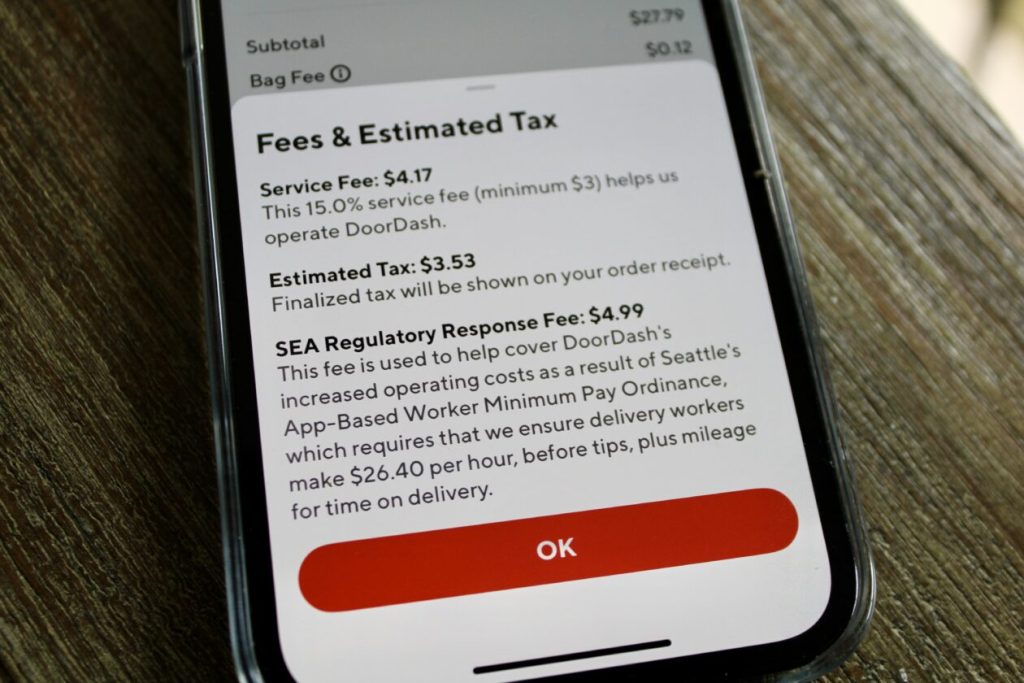DoorDash has instituted a $4.99 fee called the “SEA Regulatory Response Fee” on orders in Seattle to help cover the increased operating costs resulting from new minimum wage standards for delivery drivers. This move followed the implementation of the city’s existing minimum wage law, with the fee being created to offset the expenses related to these new regulations. However, the addition of this fee caused a decrease in demand for both DoorDash and Uber Eats, with both companies adjusting tip mechanisms to address the issue. This decrease in orders led to complaints from drivers and restaurant owners about the impact on their businesses.
In response to the complaints, the Seattle City Council President Sara Nelson proposed a new set of regulations in April that would lower the minimum wage standard for drivers from $26.40 per hour to $19.97. DoorDash and Uber heavily lobbied for these changes, with DoorDash stating that it would remove the $4.99 fee once the reform bill is enacted and operational costs are reduced. Despite expressing support for the compromise bill that guarantees Dasher earnings of at least the minimum wage of $19.97 per active hour, DoorDash has faced delays in the legislative process.
A complaint filed to the Federal Trade Commission alleged that the fees charged by DoorDash and Uber Eats are deceptive and misleading, with no reasonable or logical relationship to the companies’ actual costs. The FTC declined to comment on the complaint. Both companies are the top food delivery services in the U.S. and their CEOs have discussed the impact of Seattle’s minimum wage laws on recent earnings calls. Some drivers support maintaining the existing pay standard, as they are able to cover their expenses, while others are experiencing reduced income due to decreased demand resulting from the fees.
The proposed changes in the minimum pay rate for delivery drivers in Seattle would align it with the citywide minimum wage for employed workers. Arguments have been presented that overall pay for drivers should consider expenses such as payroll taxes that drivers have to cover as independent contractors. Seattle, along with New York City, has been a testing ground for how labor standards impact the growing food delivery market facilitated by tech companies. These companies have faced scrutiny for their impact on workers and restaurants, as they promote flexibility and independence for workers, but also face challenges related to worker pay and demand.
The minimum wage legislation in Seattle was passed in 2022 as part of other unique “PayUp” laws approved by the city. These laws include regulations related to the worker deactivation process and a 10-cent per-order fee to fund the implementation and enforcement of the “PayUp” laws. Seattle also implemented a sick leave law for delivery workers last year, adding to the various labor standards being implemented in the city. The ongoing debate surrounding minimum wage laws for delivery drivers in Seattle reflects a broader conversation about the impact of labor regulations on workers, businesses, and the gig economy as a whole.


